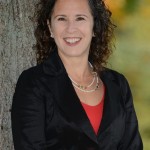
Roger Herzog
As observers of the Boston real estate market know, our historic city is heavily “built out,” with relatively few opportunities to develop vacant parcels. While the charm of our densely built city means there is great demand to live here, the relative scarcity and high cost of available development sites present a challenge to policymakers and the community development sector who seek to increase the stock of Boston’s affordable housing. Nonprofit developers tell us that when they identify vacant or underutilized parcels with potential for affordable housing development, they frequently have difficulty competing for acquisition against private developers, and when they can acquire, may need to hold sites for several years before they can assemble project financing and move into construction.
Last year, our colleagues at the city of Boston’s Department of Neighborhood Development (DND) approached CEDAC and the Local Initiatives Support Corporation (LISC Boston) with an idea for an acquisition fund that could help level the playing field for nonprofits: the Vacant Site Acquisition Fund. This fund targets sites that are often sources of neighborhood blight. CEDAC has long helped nonprofit developers acquire sites that are both eyesores and in need of cleanup and our participation in the Vacant Site Acquisition Fund is an extension of that work.

Sara Barcan
Boston Mayor Marty Walsh, along with CEDAC and LISC Boston, announced the creation of the fund last fall. Its program design resulted directly from conversations that DND, CEDAC and LISC conducted with nonprofit housing developers and reflects their priorities: a predictable, competitive interest rate; a longer loan term than typical acquisition loans; a streamlined approval process; and assistance with site control and holding costs.
The Vacant Site Acquisition Fund established a pilot funding source of more than $8 million to help nonprofit developers purchase vacant or underutilized land appropriate for the development of multifamily housing. The city has committed $2.5 million, while CEDAC and LISC Boston have provided a combined $6 million. CEDAC manages the day-to-day operations of the fund, which has an efficient “one-stop” approval process enabling nonprofit developers to better compete in the private market.
The fund has three components:
- Site deposit assistance: DND has set aside $200,000 for short-term, zero interest bridge loans, available to nonprofit developers who need to make cash deposits to secure site control of potential acquisition sites.
- Acquisition fund: A combined $8 million contributed by the city, CEDAC, and LISC Boston funds low interest rate acquisition financing with longer terms to acquire sites and plan for future affordable housing development. CEDAC’s streamlined approval process allows developers to respond quickly when opportunities arise and create additional opportunities for properties not currently on the market.
- Holding cost assistance: DND has also allocated $300,000 for zero interest loans to cover interest, insurance, real estate taxes and other holding costs while nonprofits conduct community process, secure regulatory approvals and assemble complex packages of public and private financing.
Combating Displacement in Jackson Square
Since the fund was established, one project has closed using its resources, with a second loan approved. Urban Edge Inc., a community development corporation that serves Roxbury and Jamaica Plain, in January acquired two lots on Columbus Avenue, adjacent to a third parcel that the CDC purchased through a prior CEDAC acquisition loan. Located just outside of Jackson Square, those underutilized parcels include a commercial building in need of repair and a parking lot. These sites are within an area that the Boston Planning and Development Agency (BPDA) deemed PLAN: JP/ROX, about which the city of Boston has made recommendations regarding affordable housing, transportation and open space improvements. Urban Edge’s project will both combat displacement, which remains a problem in the surrounding neighborhood, and contribute to Jackson Square’s revitalization.
“The Vacant Site Acquisition Fund is an important new resource for nonprofit organizations in Boston who otherwise might find it challenging to compete in the real estate market,” said Frank Shea, CEO of Urban Edge. “Along with providing resources, working with the city, CEDAC and LISC Boston made this a much easier process.”
CEDAC, DND and LISC have heard about many exciting opportunities as we speak with our nonprofit partners, all of whom are working hard to compete in a difficult real estate market, to ensure that long-term residents and newcomers alike can afford to live here. The Vacant Site Acquisition Fund demonstrates the kind of innovative public-private partnership that shows why Boston is a national leader in community development – and ways we can be effective in creating a diverse and equitable community.
Roger Herzog is the executive director of the Community Economic Development Assistance Corporation (CEDAC). Sara Barcan is CEDAC’s director of housing development.




 |
| 

